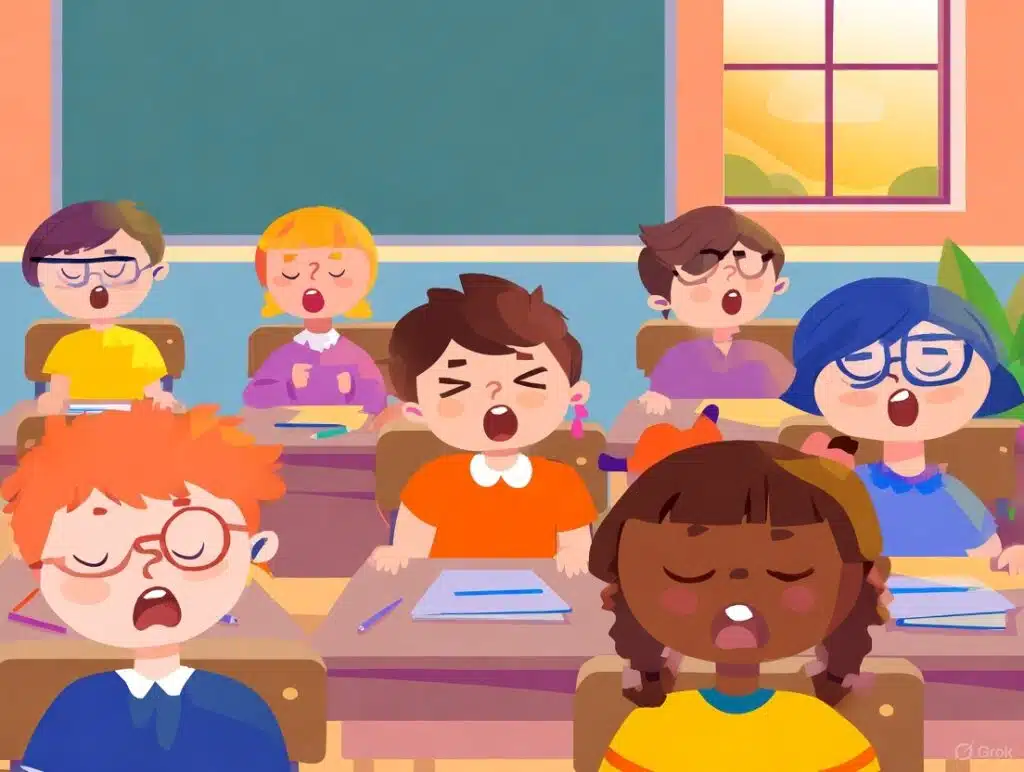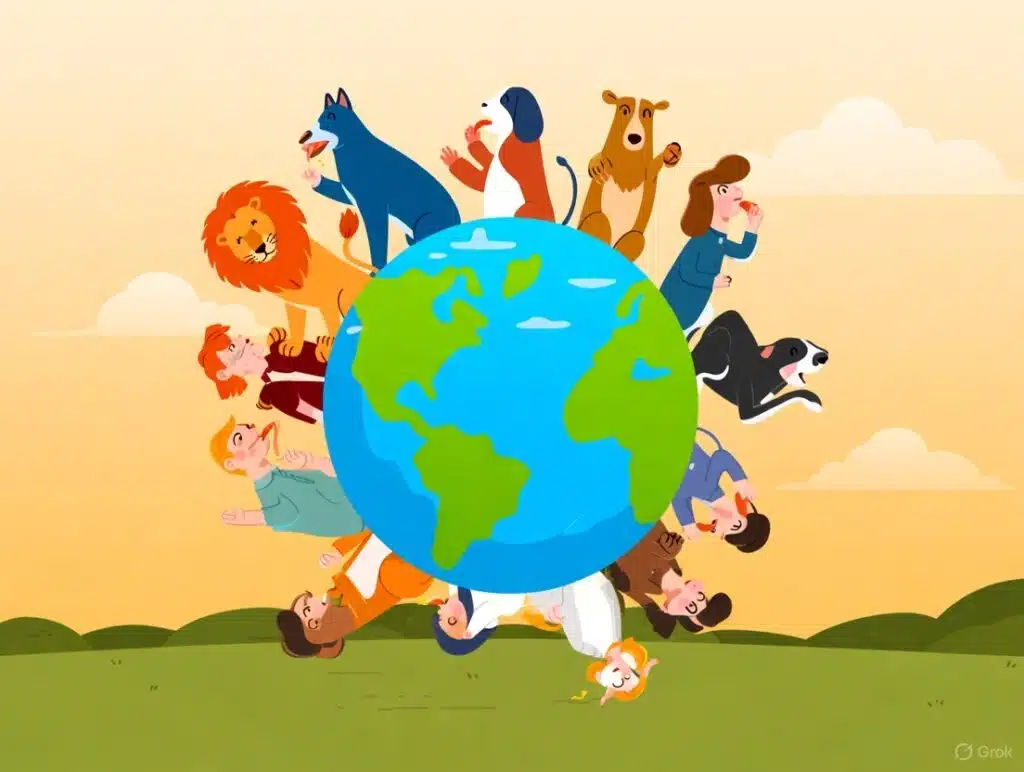The Mystery of the Yawn
You’re sitting in class, listening to the teacher. Suddenly, a student in the front row yawns. Before long, the kid next to you yawns. And then, without warning… you yawn too! But why? Why do we yawn, and why does it spread so easily?
Yawns are one of the strangest things our bodies do. They sneak up on us when we’re tired, bored, or even just after watching someone else yawn. Scientists have studied yawning for years, but even today, the exact reason we yawn remains a mystery.
Let’s dive into the world of yawns, explore why they happen, and discover whether they really are contagious.
What Is a Yawn?
A yawn is a natural action that involves:
- Opening your mouth wide.
- Breathing in deeply.
- Slowly exhaling.
It usually lasts about 5 to 10 seconds. But did you know that:
- Babies yawn before they are even born.
- Almost every animal — from lions to parrots — yawns.
- People yawn whether they are tired, bored, or sometimes even excited.
So yawning isn’t just a “sleepy sign.” It’s something far more interesting.
Why Do We Yawn? (The Theories)
Scientists don’t completely agree on why we yawn, but there are several fascinating theories:
1. The Brain-Cooling Theory
Our brains get warm when we think hard or when the weather is hot. Yawning brings in cool air, which may help lower the brain’s temperature. It’s like giving your brain a mini air-conditioner.
2. The Oxygen Theory
Another idea is that yawning helps us get more oxygen into our bodies. When we’re tired or bored, our breathing slows down. A big yawn brings in a rush of oxygen to wake us up.
3. The Alertness Theory
Some scientists believe yawns are a way to keep us awake. When you yawn, your heart rate and blood flow increase slightly. This may be your body’s way of saying, “Stay alert!”
4. The Social Bonding Theory
Yawning may also be about connection. Some researchers think yawning shows empathy — the ability to feel what others feel. When we see someone yawn, our brain might “copy” them to show we are connected.

Is Yawning Contagious?
Yes — yawns are famously contagious! Just seeing, hearing, or even reading about yawns can make you start yawning. (Did you yawn yet while reading this?)
Scientists call this contagious yawning. Here are some fun facts:
- About 50–60% of people yawn after seeing someone else yawn.
- You’re more likely to catch yawns from your family or close friends than from strangers.
- Even animals like dogs can “catch” yawns from humans.
This contagious effect shows that yawning isn’t only about being tired — it’s also about connection between living beings.
Yawning Across the Animal Kingdom
Humans aren’t the only creatures who yawn. Let’s see how animals use yawning:
- Lions yawn to get ready for hunting. It may help them stay sharp.
- Birds yawn when they’re full or trying to stretch their beaks.
- Dogs yawn when stressed or when copying their owners.
- Chimpanzees yawn contagiously like humans, which means empathy may exist in the animal world too.
This shows yawning is an ancient behavior — one that connects species across the planet.
Can You Resist a Yawn?
Here’s a fun challenge: try not to yawn while reading about yawns. Scientists say it’s almost impossible for many people. Just thinking about yawns can trigger them!
Some studies show contagious yawning begins in humans around age four or five. Babies and very young children may yawn often, but they don’t usually “catch” yawns until they’re older.
Strange Facts About Yawns
Yawns may seem simple, but they’re full of surprises:
- The average person yawns 20 times a day.
- People yawn most often just after waking up and right before sleeping.
- Ancient people believed yawning let the soul escape the body — that’s why people covered their mouths!
- Yawning is so powerful that reading the word “yawn” can make you do it.

Why Scientists Are Still Curious
Even after years of research, scientists don’t fully know why we yawn. The brain-cooling, oxygen, alertness, and social theories all have some evidence, but none explain yawning completely.
That’s what makes yawns exciting — they’re something ordinary that still holds mystery. Every time you yawn, you’re taking part in a puzzle that scientists are still trying to solve.
Conclusion: The Yawning Connection
Yawning may seem small, but it’s a powerful signal. It cools our brain, stretches our lungs, wakes us up, and connects us to others. And yes, it really is contagious — spreading through classrooms, living rooms, and even across species.
So the next time you yawn, remember: you’re not just tired. You’re part of a chain reaction that links people and animals everywhere.
And who knows? Maybe while reading this article, you’ve already yawned more than once.

